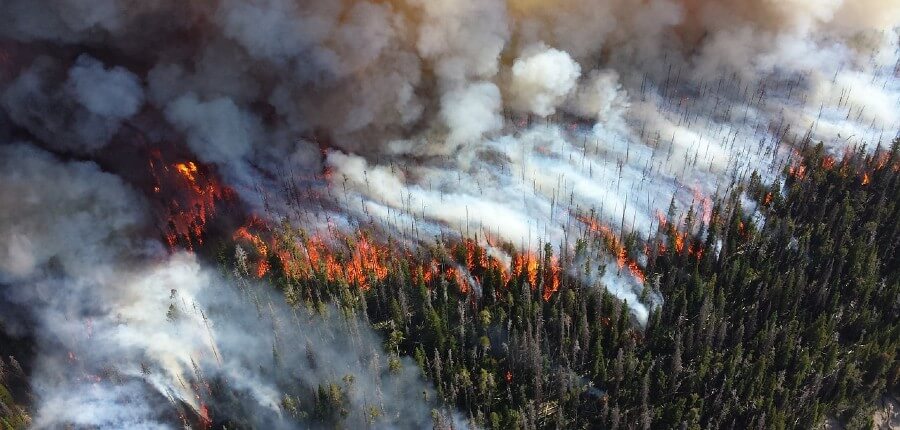What images will we associate with summer? Terrifyingly orange skies, razed neighborhoods and the charred remains of cars. At last count, over 5 million acres of land have burned across the West Coast. Washington state’s governor called on citizens to stop calling these events “wildfires.” They are, he said, “climate fires.”
Climate change has affected the duration and severity of fire seasons around the world, with hotter temperatures and drier flammable materials heightening the risk. There is much that our policymakers must do to reduce greenhouse-gas emissions and prevent steadily worsening infernos from turning the summer into a season of dread. But there are also ways that we ourselves can make a difference. The easiest and most effective is to reject animal-derived foods and go vegan, since one reason why the world is burning is because we eat too much meat.
We are entering a disturbing era for fire-related emissions. At last count, the emissions from California’s fires totaled 83 million tons of carbon dioxide—spewing out more carbon than all of California’s power plants combined. The amount of fire-related carbon dioxide already emitted in Oregon surpasses the state’s annual transportation emissions. And let’s not forget that the Earth and our collective lungs are still processing Australian fires from the beginning of the year. Those blazes emitted 306 million tons of carbon dioxide—more than half of the country’s 2018 total emissions from all sources.
How will our environment absorb such an immense volume of emissions, especially when large swaths of forests are under threat? In Brazil, fires rage in the Amazon rainforest and the Pantanal wetlands. This year, the wetlands have experienced 15,000 fires—triple the number recorded in the same period last year. The vast majority of those fires were set by loggers and ranchers to clear land for cattle farming. Once this land is cleared, the cows grazing on it will contribute to the meat industry’s massive quantity of greenhouse-gas emissions. The Amazon provides 20% of the world’s oxygen, so the question becomes: Is the world’s appetite for beef destroying our air?
Right now, in California, five of the 20 largest fires in state history are burning all at once. The Golden State has warmed by 3 degrees Fahrenheit in the last century, and this hotter air causes drier plants, which are ideal tinder for fires. And this year’s suite of large fires is no anomaly: 15 of the 20 largest fires in California history have taken place in the last two decades. National Geographic reports that the fire season has lengthened by 75 days. Is this devastating summer a portent of things to come?
The scientific consensus is clear: In order to save the planet, we have to exclude meat, dairy and eggs from our plates. Researchers from the University of Michigan and Tulane University published a 2018 report showing that animal-derived foods are responsible for 83.5% of diet-related greenhouse-gas emissions. By contrast, vegetables, fruits, legumes, grains, nuts and seeds were each responsible for under 3% of diet-related emissions. University of Oxford researchers declared back in 2014 that if people who eat more than 100 grams of meat per day—the size of a rump steak—went vegan, they would reduce their food-related carbon footprint by 60% and save around 1.5 tons of carbon dioxide per year.
The United Nations Intergovernmental Panel on Climate Change released a 2019 report further confirming these statistics, stating that it will be impossible to keep global temperatures at a safe level unless we adopt “healthy and sustainable diets, such as those based on coarse grains, pulses and vegetables, and nuts and seeds.” Martin Heller of the University of Michigan summed it up:
“It’s climate action that is accessible to everyone, because we all decide on a daily basis what we eat.”
By going vegan, you will be preserving breathable air, potable water and a habitable environment for future generations. Eating meat is burning our planet to a crisp.
Order Your FREE Vegan Starter Kit Today!
Jessica Bellamy is a writer for the PETA Foundation, 501 Front St., Norfolk, VA 23510; www.PETA.org.





